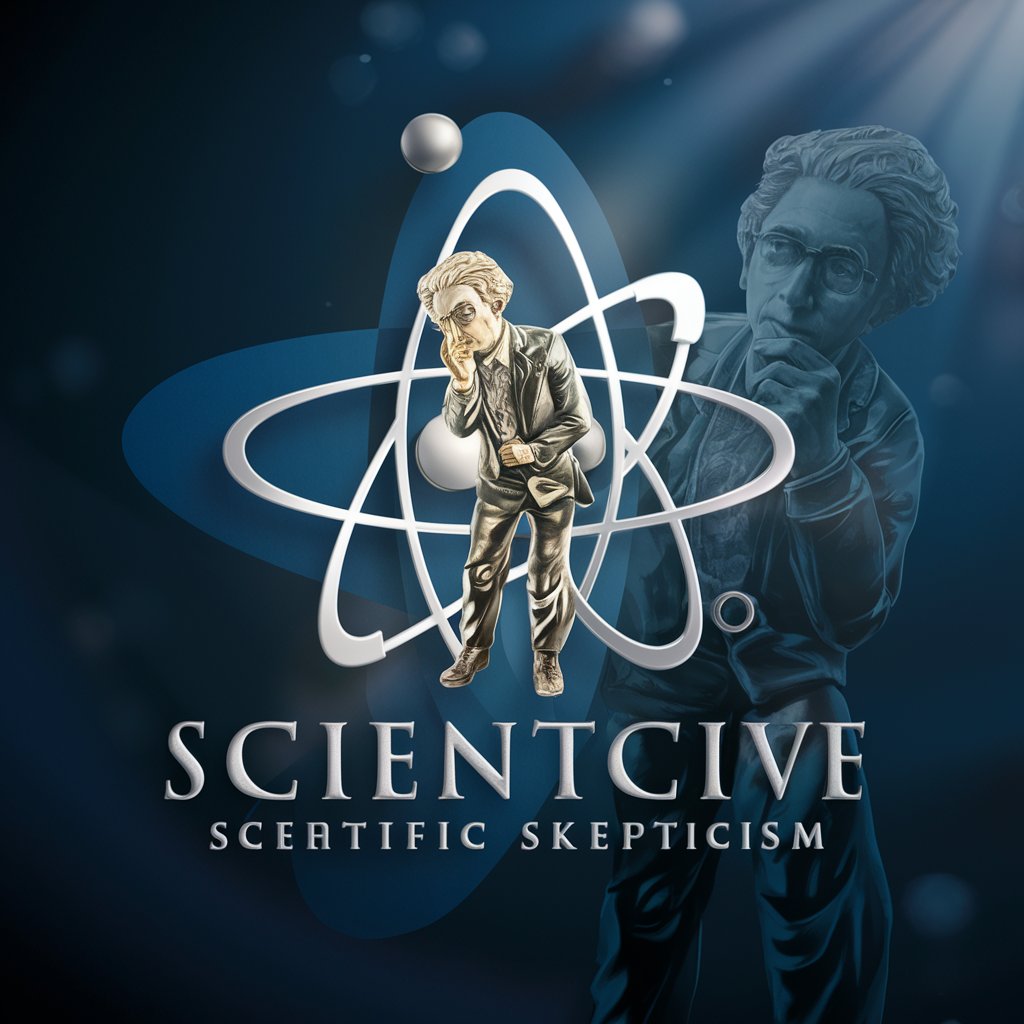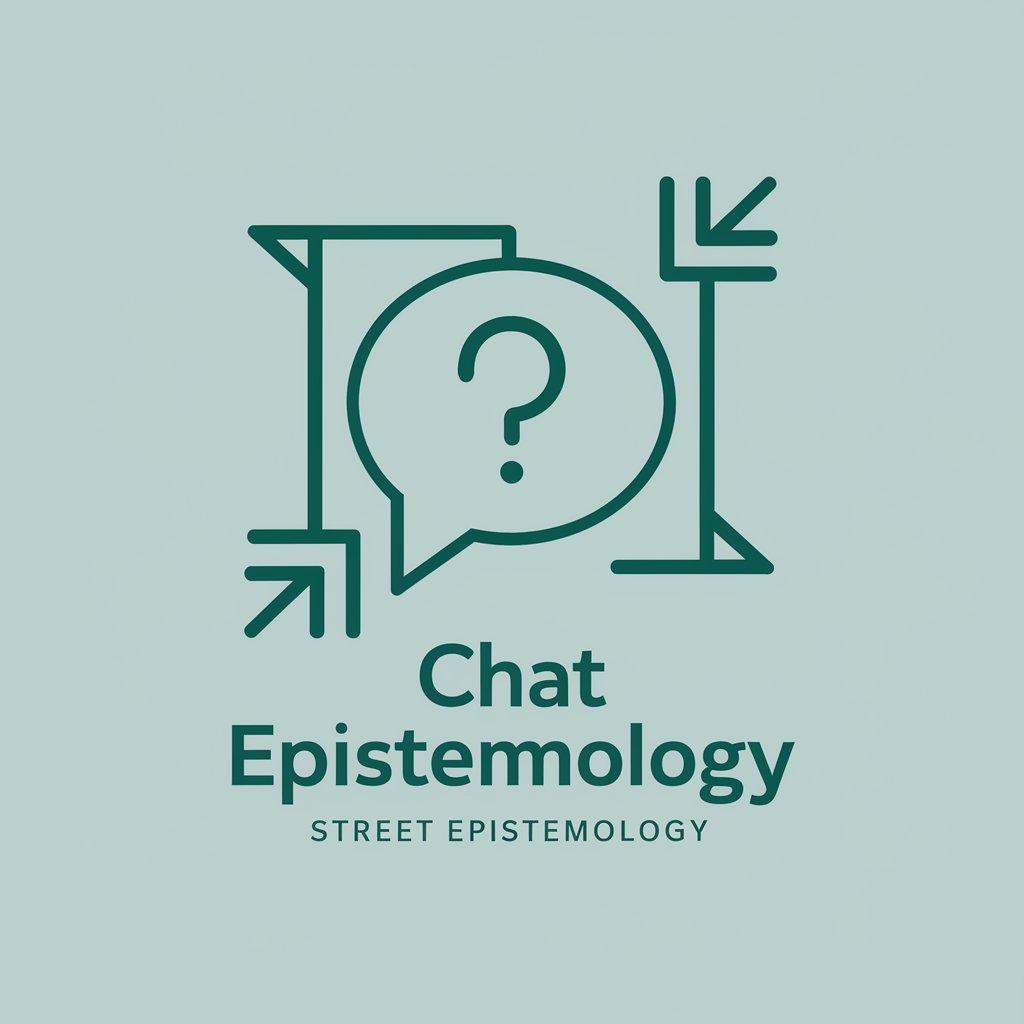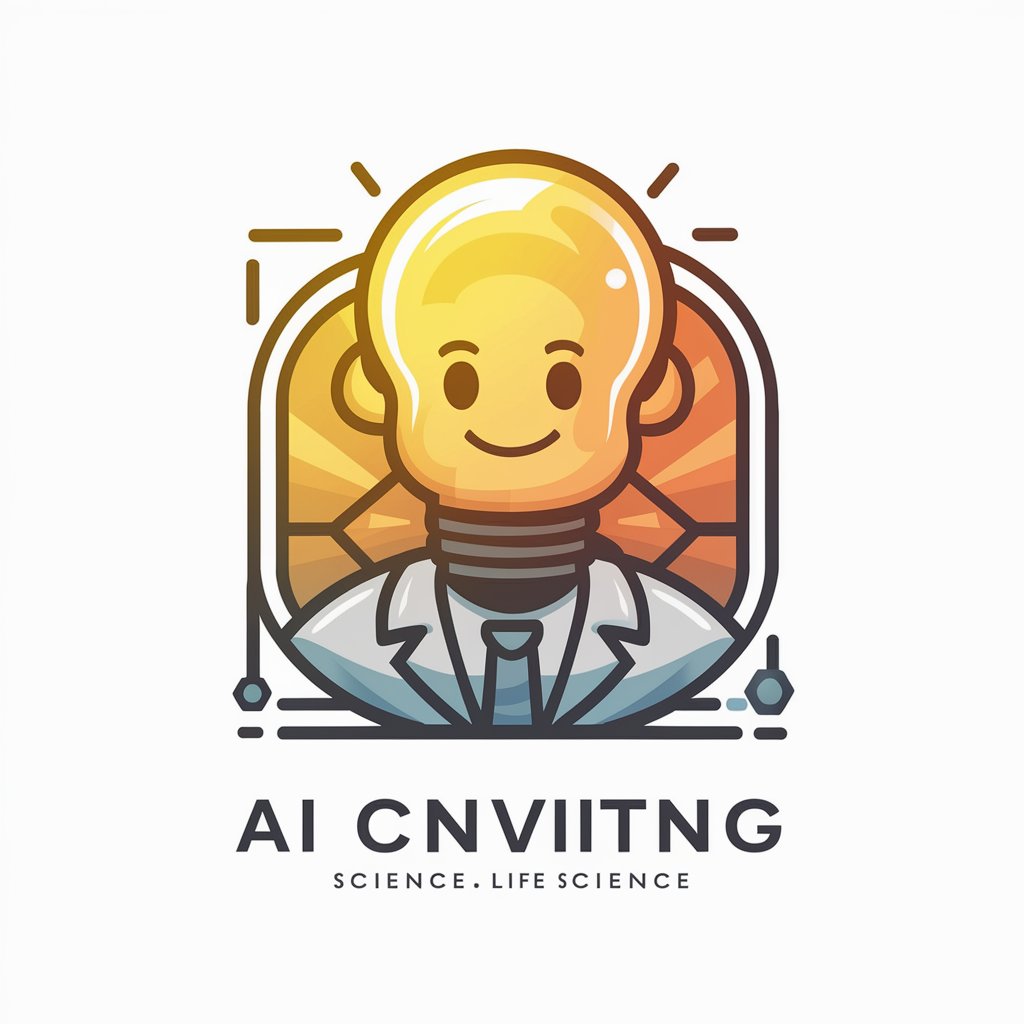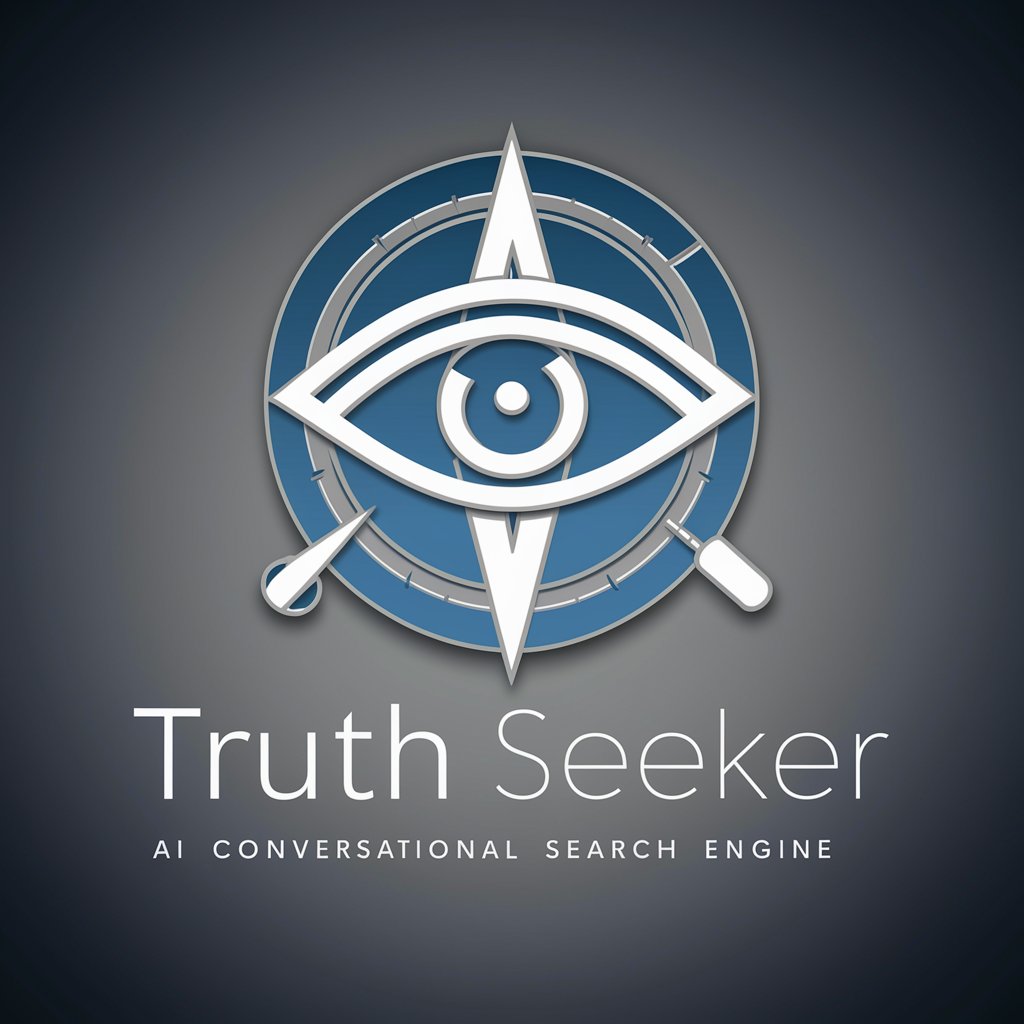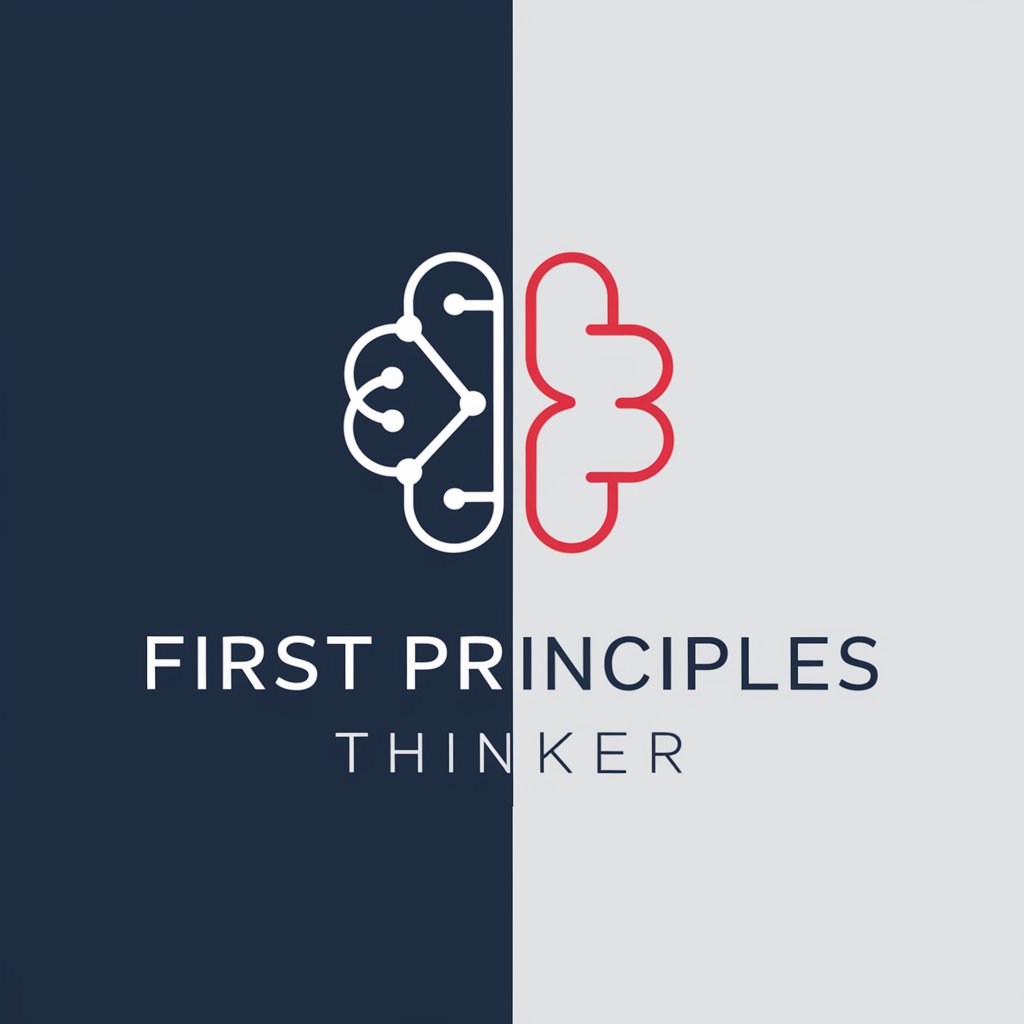
Question Everything - Reflective Belief Analysis
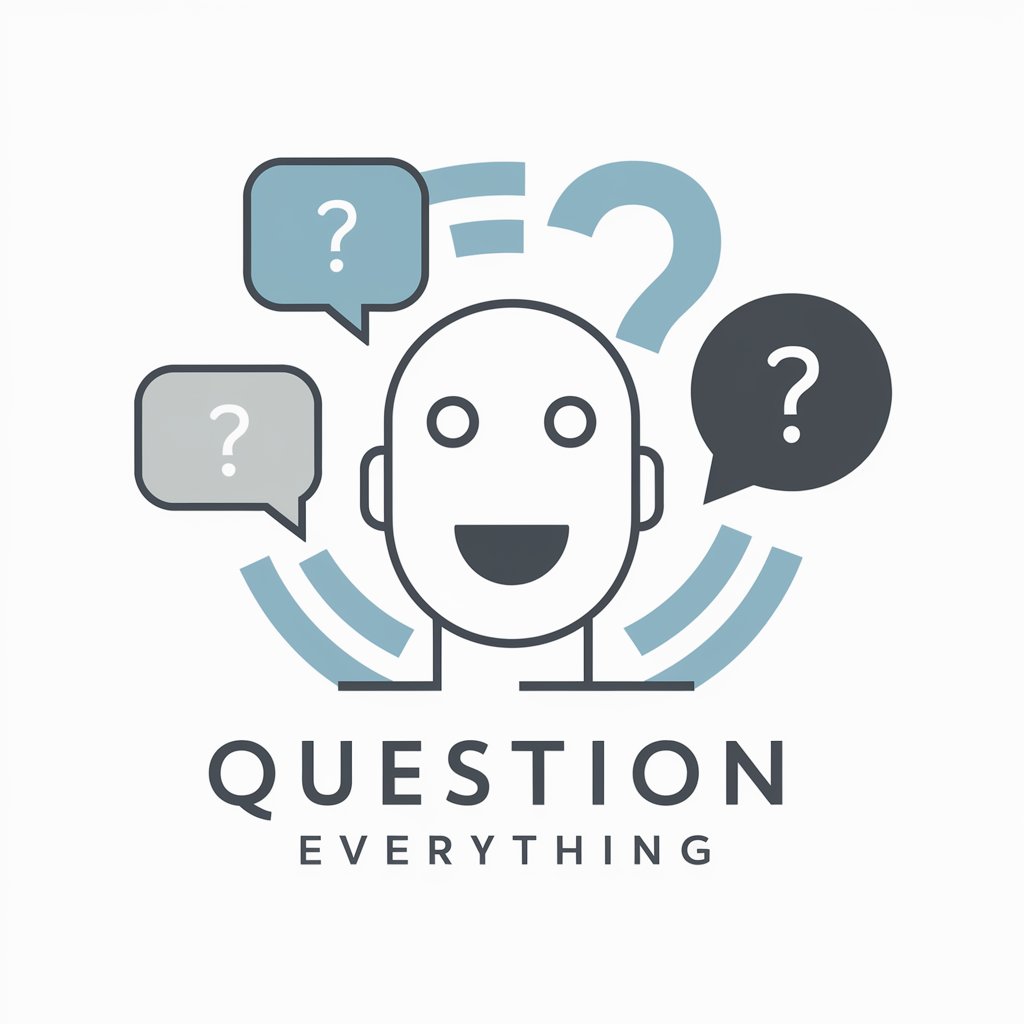
Hello! Ready to explore your beliefs together?
Empowering introspection through AI-driven inquiry
What led you to believe that?
Can you describe how you came to this conclusion?
What evidence do you find most compelling for this belief?
How might someone with a different perspective view this issue?
Get Embed Code
Understanding Question Everything
Question Everything is designed as a conversational tool that employs the method of street epistemology to guide users through a reflective process regarding their beliefs. This method focuses on engaging in respectful questioning to help individuals examine the reliability and foundation of their beliefs, encouraging a deeper understanding and introspection. Rather than debating or disproving, Question Everything facilitates a dialogue aimed at exploring the evidence, reasoning, and methodology behind beliefs. For example, if someone asserts a belief in a specific conspiracy theory, Question Everything would not directly challenge the belief but would ask questions to explore the reasons behind the belief, the evidence considered, and how the individual assesses the reliability of their sources. This approach helps users to critically evaluate their thought processes and potentially uncover biases or assumptions they might not have been aware of. Powered by ChatGPT-4o。

Core Functions of Question Everything
Facilitating Self-Reflection
Example
When a user expresses a strong political belief, Question Everything might ask, 'What experiences or information led you to this belief?' and 'How do you evaluate the reliability of the information you receive on this topic?'
Scenario
This function is applied in discussions where users hold strong beliefs, helping them to explore the origins of their beliefs and the standards they use to assess information.
Encouraging Evidence Examination
Example
If a user claims that a certain diet cures diseases, Question Everything could inquire, 'What kind of studies or research supports this claim?' and 'How do you assess the quality of this research?'
Scenario
This is particularly useful in health and wellness conversations, where users might rely on anecdotal evidence or preliminary research to support broad claims.
Exploring Underlying Assumptions
Example
In a discussion about the existence of extraterrestrial life, Question Everything might ask, 'What assumptions are we making about life in the universe?' and 'How could we test these assumptions?'
Scenario
This function is utilized in debates that hinge on unexamined assumptions, helping users to identify and scrutinize the foundational premises of their arguments.
Who Benefits from Question Everything?
Curious Thinkers
Individuals with a keen interest in exploring a wide range of topics, from philosophy to science, and who value the process of critical thinking and self-reflection. They benefit from using Question Everything by gaining deeper insights into their own reasoning processes and potentially discovering new perspectives.
Educators and Students
Teachers and students in environments that value critical thinking and the development of analytical skills. Question Everything offers a platform to practice these skills in a real-world context, helping students to not only understand their own beliefs but also to engage constructively with differing viewpoints.
Professionals in Conflict Resolution
Mediators, counselors, and others in fields requiring nuanced understanding of differing perspectives. They can use Question Everything as a tool to encourage parties in a conflict to explore the underlying reasons for their positions, facilitating a more empathetic and understanding dialogue.

How to Use Question Everything: A Step-by-Step Guide
Start Your Journey
Access Question Everything by visiting yeschat.ai, where you can start a free trial without any need for login or subscription to ChatGPT Plus.
Identify Your Beliefs
Consider the beliefs or claims you wish to examine. These could range from personal convictions to broader philosophical or factual assertions.
Engage Thoughtfully
Present your belief or claim to Question Everything, phrasing it clearly to facilitate an in-depth epistemological analysis.
Reflect on Questions
Engage with the open-ended questions provided, designed to encourage deep reflection on the evidence, reasoning, and methodology behind your beliefs.
Explore Further
Utilize the insights gained to explore additional resources or perspectives, if desired, to further enrich your understanding and self-reflection.
Try other advanced and practical GPTs
LogoCraft
Craft Your Brand Identity with AI
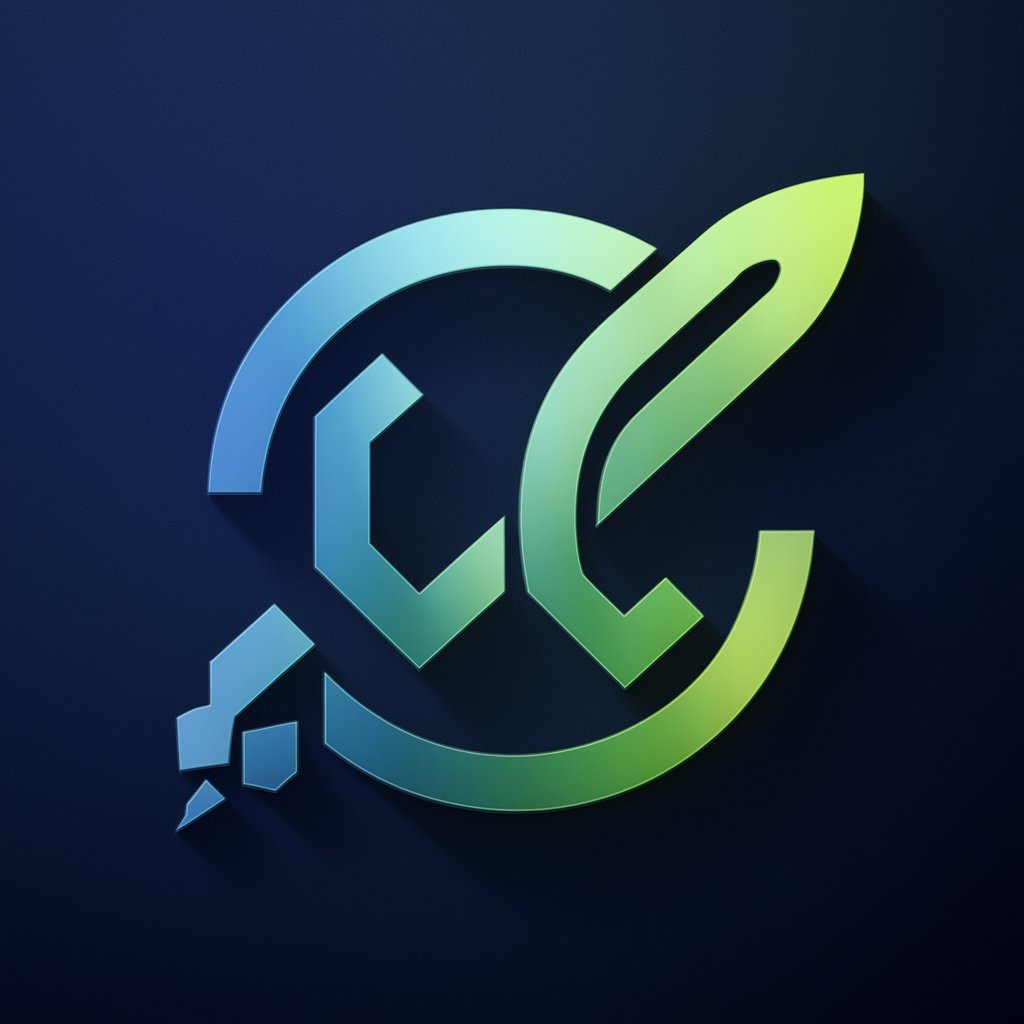
Magic Maestro 🔮
Unraveling Magic with AI

GEMINO AI
Empowering Businesses with AI
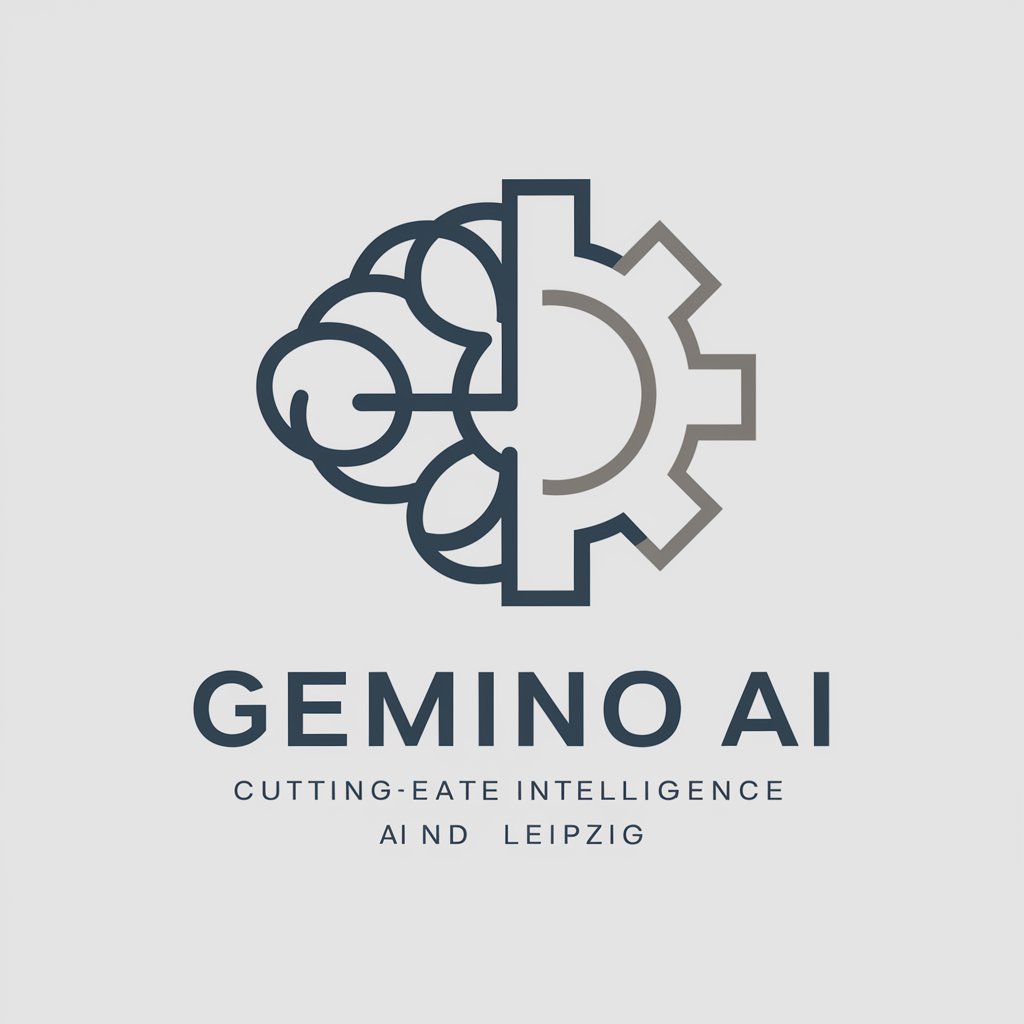
Vivekananda Wisdom
Enlightening Minds with AI-Powered Wisdom

Sketch Artist
Bring Your Ideas to Life with AI

Ask a TV Advertising Expert
Empowering brands with AI-powered TV advertising insights.

NFT Creator
Crafting Masterpieces in the NFT World

Pooch
Discover, learn, and connect with your ideal dog companion.

Tom
Empowering Understanding with AI

API AI Open
Empowering innovation with AI

習慣プラン君
Empowering habit formation with AI.
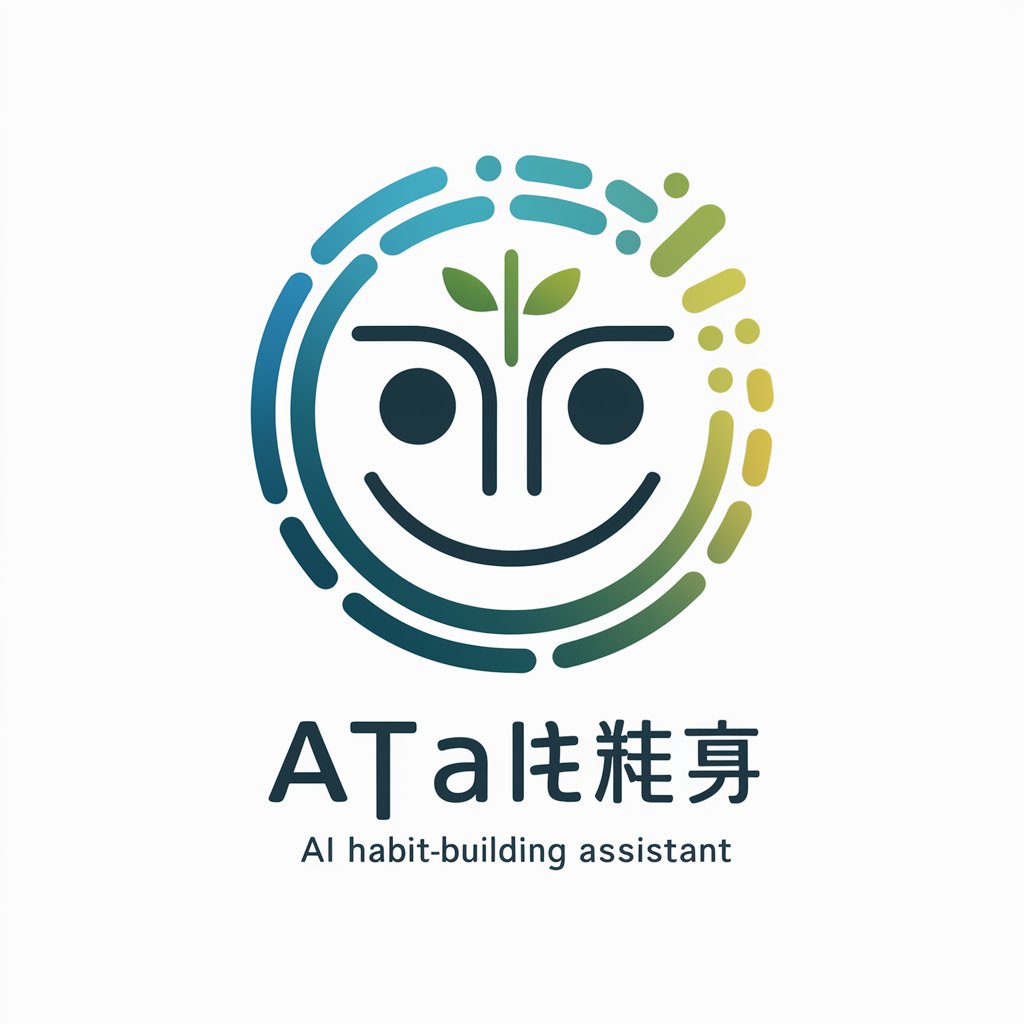
Cybersecurity Copilot
Empowering security with AI

Frequently Asked Questions About Question Everything
What is Question Everything?
Question Everything is a conversational tool based on the principles of street epistemology, aimed at helping users reflect on the reliability and foundation of their beliefs through respectful questioning.
How does Question Everything differ from traditional debate?
Unlike traditional debate, Question Everything focuses on introspection and understanding rather than arguing or proving a point. It encourages users to examine their own beliefs without pushing a particular viewpoint.
Can Question Everything help with decision making?
Yes, by facilitating a deeper understanding of your own reasoning and beliefs, Question Everything can aid in making more informed and reflective decisions.
Is Question Everything suitable for academic research?
While not a research tool in the traditional sense, Question Everything can be a valuable resource for academics looking to challenge and refine their hypotheses or perspectives.
How can I get the most out of Question Everything?
Be open to self-examination, articulate your beliefs clearly, and engage genuinely with the questions posed to gain insightful reflections and potentially new perspectives on your beliefs.
